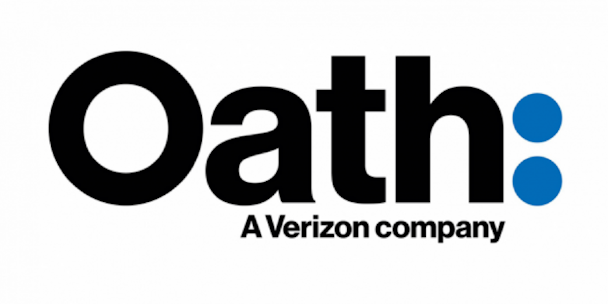Oath is testing a recommendation engine to ‘help you find apps you need before you know you need them’
Verizon Wireless plus its newly formed Oath unit are performing a number of trials to shake up the digital marketing sector, with Oath chief executive Tim Armstrong recently discussing its usage of Digital Turbine, plus the potential trade-offs between the telco and subscribers over data usage.

Oath CEO Tim Armstrong told advertisers he believes Verizon customers will receives content incentives in return for data usage / Verizon Wireless
Recently formed Oath, born out of the union AOL and Yahoo after their acquisitions by the telco, is on a four-day sales pitch at Advertising Week New York, complete with its own branding campaign, in a bid to lure advertisers to its stable, a number of offerings offerings underpinned by two tenets: adtech, and content.
Speaking during an on stage interview, Armstrong covered a range of topics such as a trials it was conducting with technology brought on board by Verizon, including Digital Turbine.
The offering works similar to Verizon’s AppFlash offering, in that it helps to divine what apps to install on a user’s phone, with Armstrong describing it as thus: “So we’ll help figure out what apps to put on your phone… so there’s an ability for Verizon to essentially figure out what apps you should have on your phone before you know you need them.”
Armstrong did not discuss whether or not there are any plans to commercialize the trials, Verizon itself has been using Digital Turbine since 2014, but the statement was in answer to questions on Oath and its potential to assist in the targeting and measurement of the telco’s 146 million subscribers.
“From a Verizon standpoint, and from a customer standpoint, we’ll give you direct access to brands,” he said. “It’s allowing us to come up with other models for Verizon customers over time to have subsidized ways of getting more content and more data, we’re testing a whole bunch of things with Verizon right now.
"So I think as a Verizon customer you’ll see a content benefit over time, and eventually I’ll think you’ll see the ability for you to do more commercial stuff with your phone.”

Despite the continually positive growth numbers forecast for the digital advertising sector, eMarketer predicts it will account for 40.5% of all ad spend ($205.6bn) in the US in 2017, the fact that it is dominated by two companies, ie Facebook and Google, aka the duopoly) is notable, and proven problematic for some.
Geoff Ramsey, eMarketer, co-founder and chief innovation officer, told attendees at yesterday’s Modern Marketing Summit (a sub-strand of Advertising Week New York) the duopoly account for 63% of all digital ad dollars spent in the US.
Referencing a recent eMarketers study, he said that no other player in the study of advertisers’ spending patters pulled in any more than 3% marketshare, with the primary reason for advertisers concentrating their spend with these players due to the quality of their data.
This has caused high profile individual advertisers and leading agency staff to openly criticize Facebook and Google, also popularly referred to a ‘walled gardens’, leading many to speculate that
Oath may prove a welcome party to disrupt their marketing hegemony. In fact, Armstrong went on detail how the ‘brand safety furore’ that kicked off during Ad Week Europe, his outfit actually saw a spike in revenues, as advertisers withheld spend from the duo in protest.
“I think the reason that people object to Facebook and Google, is that Facebook and Google are so powerful within their ad budgets. They probably like the ROI they’re seeing from them, they just don’t like the level of spending overall,” he said.
Armstrong went on to highlight the point-of-difference between the duopoly and his own stable, with the biggest sell to advertisers the fact that properties such as TechCrunch and Huffington Post are much safer proposition when looked at through the lens of the brand safety furor earlier this year.
According to Armstrong, it’s the vast swathes of mobile data that Verizon is now able to bring to their conversations with advertisers, that is helping to shift the dial, and win over advertising spend.
“When we started at AOL, we were bringing a rock to gun fight, but with Verizon and the resources, data and distribution, and now that we have scale of over a billion consumers online, we can start to enter the conversation in a way,” he told attendees.
Tim Armstrong was speaking during a panel Ad Week New York, click here for more coverage of The Drum's coverage from the show floor

